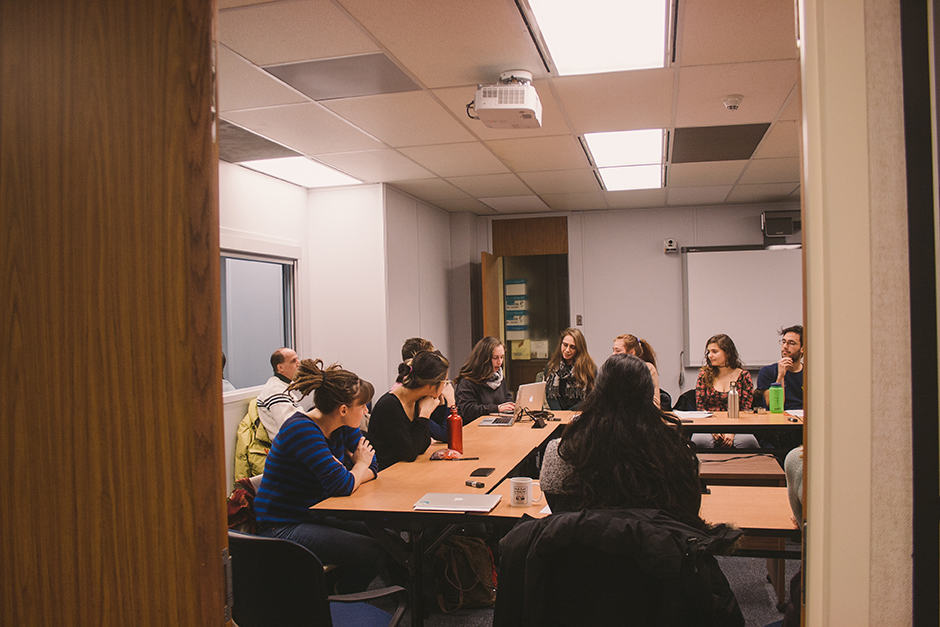Just two months after Dalhousie University’s board of governors voted against divesting its holdings in fossil fuel companies, the University of Toronto Fossil Fuel Divestment Campaign is ramping up its activities as it prepares to present to a Governing Council ad-hoc committee later this semester.
The campaign is one of five campaigns run through Toronto350 and held its first meeting of the term on January 5, 2015.
The meeting focused on the campaign’s efforts to gain support from financial professionals to supply legitimacy for their argument, as well as efforts to engage with the ad-hoc committee in divestment discussions.
The ad-hoc committee will question the campaign before providing a recommendation to the Governing Council and U of T president Meric Gertler on whether the university should divest from fossil fuels.
“We’re going to try to make it a public event when we present to the ad-hoc committee so students can see the process and show their support,” says Ben Donato-Woodger, operations director of Toronto350.
The campaign also plans to seek support from the university’s faculty and alumni. “There’s no point in accepting climate science if it won’t act on its commitment to science,” says Donato-Woodger.
In March 2014, the campaign submitted a 200-page brief explaining why the university should divest from fossil fuels. The campaign plans to update that brief to include recent scientific research and divestment news, including the development that at least seven universities in North America have pledged to divest.
“By committing to divest from fossil fuels, the University of Toronto will be seen as a leader in environmental and climate sustainability,” says Riley McCullough, sustainability commissioner of the University of Toronto Students’ Union. “If the university commits to divest, it will be making a statement that it acknowledges that fossil fuels play a direct role in the future liveability of our planet and the well-being of current and future generations.”
With Global Divestment Day occurring on February 13 and 14, 2015, the campaign also hopes to coordinate with other organizers at other Canadian campuses, including Trent University, University of Guelph, and York University. The campaign hopes that, if U of T divests, other universities will be encouraged to follow.
“Since our target is the institution itself, students have a lot of power to influence the institution to support divestment,” says fourth-year political science and environmental studies student Amil Davis. “The campaign is a way for students to exercise their power in a positive way to effect social change.”
Throughout the semester, the campaign plans to increase student involvement through meetings, petition drives, letter writing sessions, protests, and tabling. The campaign also plans to build partnerships with a number of other campus student groups.


